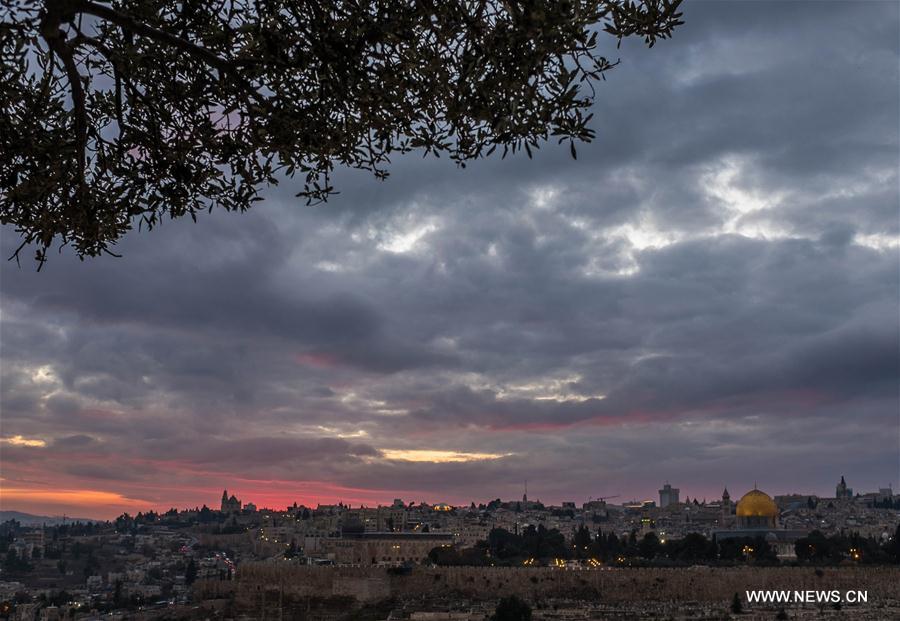Trump's Jerusalem move perilous
By Zhang Zhouxiang and Cui Shoufeng | chinadaily.com.cn | Updated: 2017-12-07 15:15

Editor’s note: US President Donald Trump announced on Wednesday that he recognized Jerusalem as the capital of Israel and will move the US embassy there from Tel-Aviv. This has sparked a debate on what the United States will gain from a decision that leaders of many countries, including Washington’s allies in the Middle East, have warned against and could lead to protests and violence. Three experts share their views on the issue with China Daily’s Zhang Zhouxiang and Cui Shoufeng. Excerpts follow:
Focus should be on how to end conflict
During the Cold War, Palestine received much support in its struggle against Israel. That support has gradually declined after the end of Cold War, and the Israel-Palestine conflict is almost marginalized amid the so-called bigger issues in the Middle East. As a result, the Palestinian people feel helpless and yet more desperate - a perfect ground for breeding hatred and extremism.
That Hamas, which apparently advocates violence to settle the Israel-Palestine conflict, has gained immense popularity in Palestine shows the Palestinians’ level of despair. And after Jerusalem gets a new status, they will become even more desperate, and more of them could join terrorist groups in the hope of launching attacks on US targets.
Jerusalem is a holy city for Jews, Christians as well as Muslims, and none of them will give up its claim on it. In fact, official recognition of Jerusalem as either Israeli or Palestinian territory is the most sensitive issue in the Middle East peace process.
There have been rumors that Trump was supported by Jews to run for the US residency and therefore he could take a pro-Israel stance. By declaring Jerusalem the capital of Israel, Trump could prompt people to dig deeper about the reasons behind.
Instead of focusing on Jerusalem, world leaders, including Israeli and Palestinian leaders, should make more efforts to end the Israeli-Palestinian conflict through peaceful talks.
Zhao Guangcheng, an associate professor at Institute of Middle East Studies, Northwestern University
Move may turn more youths into terrorists
Trump has recognized Jerusalem as Israel's capital and will shift the US embassy there, which means he has broken with years’ US presidential policy. The US Congress passed the Jerusalem Embassy Act in 1995 to shift the American embassy to Jerusalem but gave presidents the power to delay. All US presidents since then have signed the six-month waivers to defer the relocation, and for good reason.
The widening fissures among the countries in the Middle East might have prompted Trump to believe this is the right time to recognize Jerusalem as “the seat of the Israeli government” and keep the promise he had made to his voters during the campaign trail.Despite their feuds, Middle East powers had kept the Palestine issue at the center of regional affairs. But geopolitical entanglements over the past few years have pushed the Israel-Palestine issue to the margins. That Saudi Arabia sought Israel’s cooperation to counter Iran might have induced Washington to assume that despite being offended by the US’ decision, the Muslim leaders may not stand together in opposition.
Israel considers Jerusalem its “undivided capital”, while the international community views East Jerusalem as occupied territory. Trump’s move to endorse Israel's "sovereign claim" over Jerusalem could leave the Muslim world and many other countries fuming and push Palestinians toward extremism, which could affect Washington.
Li Weijian, a researcher of foreign policy studies at the Shanghai Institutes for International Studies
Palestine could find itself in helpless state
Many experts are worried that Trump's move could harm, if not stall, the Middle East peace process. But there could be a reason behind Trump’s announcement. As president, he has to defend US interests, and disturbing the Israel-Palestine peace process is not a way to do so.
His earlier moves, including the threat to close the Palestinian office in Washington, show Trump might want Israel and Palestine to reach a peace deal as early as possible by putting more pressure on the Palestinians. Of course, the end cannot justify the means, and Trump’s move might curb the Israel-Palestine peace process instead of propelling it. And since Jerusalem is sacred for not only Palestinians, but also all Muslims, it could evoke reactions — and possibly violence — from all parts of the world.
But this time Palestine may not get adequate support from the Muslim world, because Trump has chosen quite a critical time for his announcement. As the diplomatic conflicts between Qatar and several Arab states show, Arab countries are struggling with internal conflicts. Besides, they need the US’ support to check the influence of Iran, which now has quite a big say in Middle East affairs thanks to its leading role in the war against the Islamic State. Palestine may find itself quite a helpless position this time.
Yin Gang, a researcher on Middle East studies at Chinese Academy of Social Sciences
























